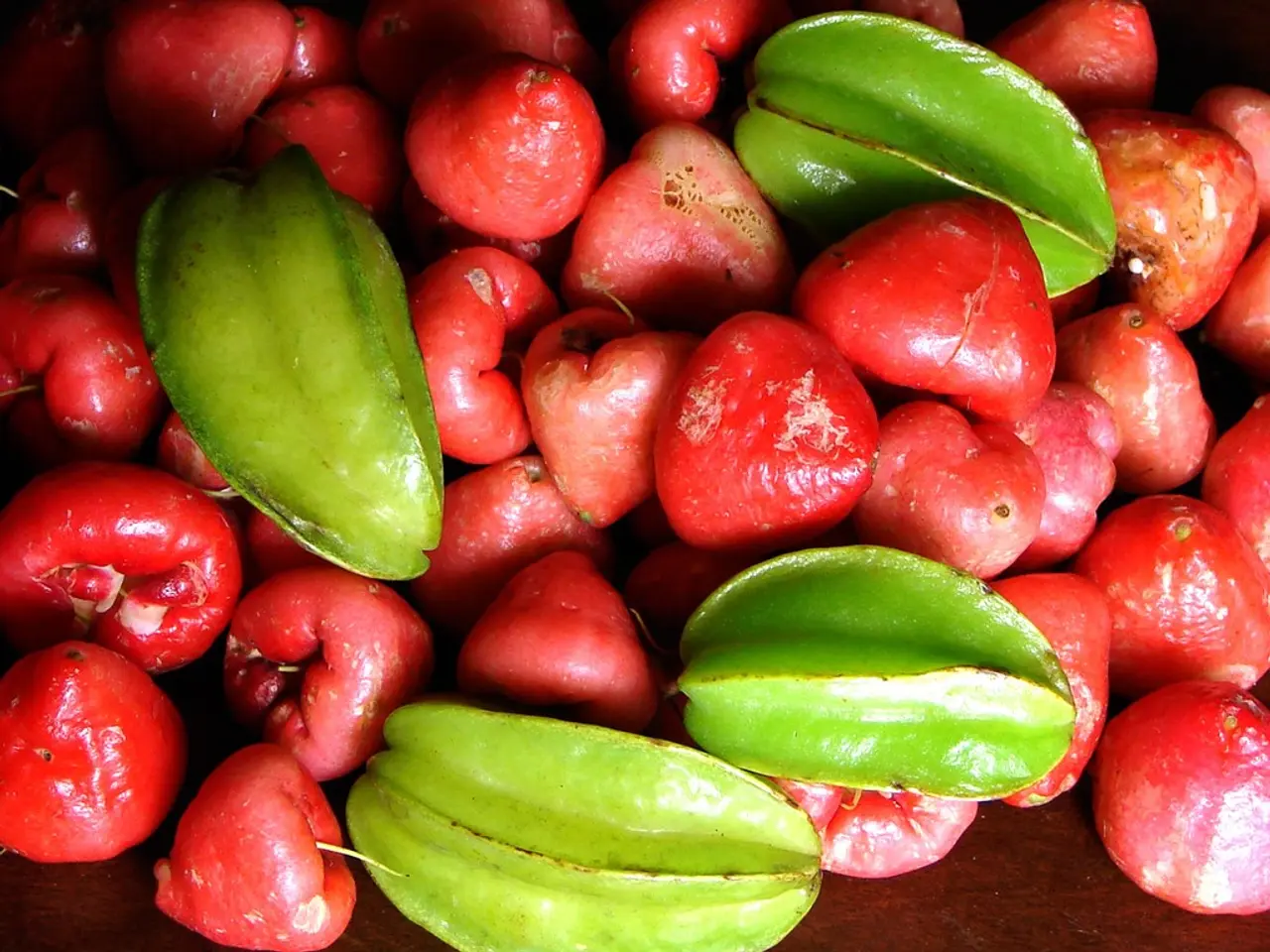Japanese Citrus Fruit Yuzu Gaining Popularity in Wellness Trends
Yuzu, a citrus fruit native to East Asia, is gaining popularity for its numerous health benefits. This tart and tangy fruit, often compared to a blend of lemon, lime, and grapefruit, is not just a delight for the taste buds, but also offers a plethora of health advantages.
Some studies suggest that yuzu may contribute to weight loss efforts by reducing body fat, although further research is needed to confirm this claim [1]. Beyond boosting immunity and improving skin health, yuzu provides additional benefits primarily due to its high antioxidant capacity and anti-inflammatory properties.
Yuzu contains bioactive compounds such as flavonoids and limonoids that help reduce inflammation, which may alleviate symptoms of inflammatory conditions like arthritis and potentially lower the risk of chronic diseases such as heart disease and cancer [1][3]. Its high vitamin C content supports antioxidant activity, protecting the body from oxidative stress [1].
Inhaling yuzu’s scent has been shown to lower heart rate and reduce stress hormones, contributing to relaxation and cardiovascular benefits [5]. This adds a potential benefit for stress reduction beyond its mood-enhancing effects.
Yuzu supports skin health by protecting the skin from oxidative stress, brightening the skin, and exfoliating. Its fiber content also helps increase feelings of fullness, reducing the likelihood of overeating and snacking between meals [2].
Yuzu juice can be enjoyed on its own, added to smoothies, or used as a base for cocktails for a citrusy twist. Yuzu zest, made by grating the peel of the fruit, is often used to add flavour to dishes, particularly in dressings, sauces, or sprinkled over fish and vegetables. Yuzu marmalade or jam, a popular treat in Japan, can be spread on toast, added to yogurt, or used as a topping for desserts.
Yuzu tea, a traditional beverage in Japan, is made by infusing yuzu juice or zest with hot water, sometimes mixed with honey to add sweetness. This refreshing drink is particularly popular during colder months.
In summary, yuzu offers a range of health benefits, including anti-inflammatory effects that may help manage arthritis symptoms and reduce chronic disease risk, strong antioxidant activity protecting cells from damage, and cardiovascular relaxation effects via scent inhalation, lowering heart rate and stress hormone levels. These benefits complement its well-known roles in immunity, skin health, digestion, and mood enhancement.
[1] https://www.ncbi.nlm.nih.gov/pmc/articles/PMC4996410/ [2] https://www.ncbi.nlm.nih.gov/pmc/articles/PMC6179386/ [3] https://www.ncbi.nlm.nih.gov/pmc/articles/PMC4996410/ [5] https://www.ncbi.nlm.nih.gov/pmc/articles/PMC6267498/
Read also:
- Managing Stormwater Efficiently through the Use of Permaculture Planning
- Radiation treatment for cervical cancer via internal means
- Treating hypertension with diuretics is a common method used by medical professionals. Diuretics help the body to remove excess salt and water, lowering blood pressure.
- Information on the H3N2 flu strain: Symptoms, prevention, and what you should be aware of.








